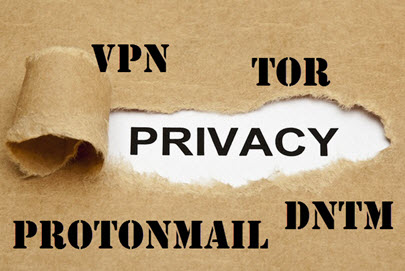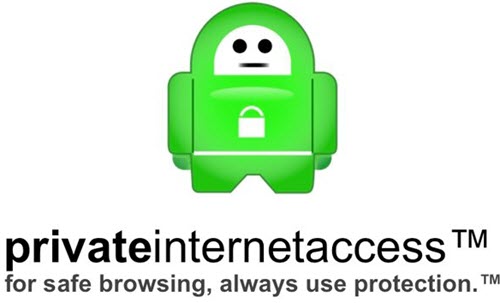The internet has undergone somewhat of a revolution since the startling revelations regarding government surveillance came to light, and the way in which we view privacy is now irrevocably changed. Many users have turned to privacy orientated services and software, such as VPNs and Tor, to at least try to maintain some degree of anonymity.
For the uninitiated; Virtual Private Networks (VPNs) provide users with a secure connection over a public network, usually the Internet, utilizing a combination of features such as encryption, tunneling protocols, data encapsulation, and certified connections.
As is the trend around the World, our wonderful Australian government is currently in the process of formulating new legislation to expand its controls over the way in which citizens use the internet, hence my recent interest in VPNs.
VPN services are available from a multitude of providers in both free and paid for packages. However, this is one clear case where the saying “you get what you pay for” definitely applies. A free plan may be suitable for some situations, but anyone seeking a full featured VPN service that won’t impact on connection speed too much should look elsewhere.
When considering potential VPN services there are three main criterion – in no particular order they are:
- Cost – Cost is obvious, nobody likes to pay more than they need to.
- Impact on Connection Speed – There is generally some degree of negative impact on connection speed associated with these services which can only be ascertained by either trying out each service or trusting what the vendor and/or reviewers have to say.
- Levels of Privacy – Even though these services pretty much all share common security protocols that doesn’t necessarily mean they all provide equal levels of privacy. The real test comes when questioning a service’s data retention policy. What we should be looking for is zero data retention.
I am not going to supply the usual list of 5 or 10 best VPNs, they are all a little different so choice is largely subjective anyway. What I will do is give you the benefit of my research over the past couple of months… and the one I settled on is Private Internet Access. So let’s break down the 3 main ingredients in relation to Private Internet Access:
At $6.95 month by month or $3.33 per month on a yearly plan, Private Internet Access is one of the least expensive VPN services out there.
When checking out reviews for the various VPNs, both editorial and user, I read nothing but favorable comments regarding Private Internet Access. Private Internet Access is included in almost every editorial “best of” list, generally at the top or very near the top, and user reviews are also consistently positive. This doesn’t necessarily prove that negative impact on connection speed through Private Internet Access is indiscernible but, the absence of comments to the contrary certainly provides a strong indication.
Now the third and final ingredient – level of privacy. This is an interesting one… as I said earlier, just because 2 or more VPNs offer the same level of security doesn’t necessarily equate to equal levels of privacy. In the end it all comes down to how much information is retained by the service and for how long. Bearing in mind that, when the authorities come knocking, the amount of data retained equals the amount of data available for disclosure.
In this regard, we can take each VPN service’s privacy policy at its word or we can delve a little deeper with the help of the folk at TorrentFreak. TorrentFreak maintains its own list of VPN services’ policies, including data retention, per medium of a question and answer survey – the results of which can be viewed here: Which VPN Services Take Your Anonymity Seriously?
If you access that page you’ll see the result for Private Internet Access right at the top of the list. Read through the answers from Private Internet Access and I’m pretty sure you’ll be suitably impressed.
Again, this isn’t necessarily proof of anything, however, the very fact that these statements have been made universally available on a public platform, and considering the inherent risk involved with not being truthful under those circumstances, does strongly suggest they would be factual.
NOTE: If a VPN service does not appear in TorrentFreak’s list it is because they either didn’t respond to the survey or they failed by logging too much information.
The Authorities’ Reaction
In what can only be described as a bizarre twist, the authorities’ reaction to all this increased patronage of privacy services such as VPNs and Tor is to treat all those users as suspected wrong-doers, based on the premise that if people are using these services they must have something to hide. So, the ironic outcome is that by utilizing such services you may very well be placing yourself even more under the microscope. Damned if you do, damned if you don’t!
I wonder if the authorities ever considered that it is their very own surveillance and invasive policies which propagated the trend in the first place?
Netflix in Australia
Finally, a local rant – bearing in mind that Netflix is not officially available here in Australia so our good citizens are forced to utilize a VPN in order to access the service. Now, the Australian government has asked Netflix to ban users who access their service via VPN. Why? I have no idea, except perhaps bowing to Foxtel’s bidding.
Here in Australia we have just one single nationwide PayTV provider, Foxtel and very little in the way of extensive streaming video services. The situation is one of of very little to zero choice and, ultimately, competition. What our totally misguided government should be doing is encouraging competition in this area NOT coming down on people who are paying good money for a legitimate service.
Bottom line in all this; it doesn’t matter which way we turn, the authorities will zig and zag to maintain control somehow.





Hi Jim,
As you say, misguided government is spot-on, and one has to wonder what the next move is by our ‘nappy-changers’.
It wouldn’t surprise me if they followed Britain and required us to have a TV licence for which they pay £145.00 (Aussie $269.00) per annum for a colour TV and £45.00 (Aussie $84.00) per annum for a black and white TV just for watching as the programmes are aired, the rules change when the following takes place :-
Since a TV licence is only required for receiving or watching live TV as it is being broadcast, it follows that it is not needed for simply owning a TV or using iPlayer, and this has been confirmed by the BBC.
In addition, it is not necessary to own a TV licence for the purpose of :-
Operating a digital box used with a hi-fi system or another device that can only be used to produce sounds.
Installing and using a television set solely as a closed-circuit TV monitor.
Using a TV to play pre-recorded DVDs or videos (although to record live programmes it is necessary to hold a licence)
Using a TV solely as a digital radio receiver
Using a TV as a computer games console
****Watching catch up TV services when the programme is not live.
UK Freeview TV programmes. :-
http://www.freeview.co.uk/whats-on/channels
I doubt that there is a shortage of people on the waiting list for inspector’s jobs.
Regards,
Jonno.
Before digital media, it was difficult if not impossible to get analogue via the Internet. Having a digital media, it’s like every photocopy is an original with watermark. Safety features are easier to by-pass, making access to them World Wide (that’s 2 w’s from World Wide Web).
It also means users can have FREE access to just about everything digital – in the entertainment industry, thus all the commotion. But, each computer has a unique address making tracking extremely easy for telemarketers and Big Brother. VPN’s mask your ip, making tracking you almost impossible. Companies loss $$$ and so does Big Brother, on the taxes. You might say we’re in the middle of a TAX revolution. I’m all for taking back by excess tax money, and torrents with VPN are the way of the future.
BTW, excellent article Jim, and sorry to hear about you predicament, Mindblower!
I have been using PROXPN for over a year now. No bandwidth restrictions and servers in many countries,with superb after sales support. Recommended by “Security now” (Steve Gibson). Promo code: S/N gets you 20% off. (£36 approx)…….Keep up the good work!